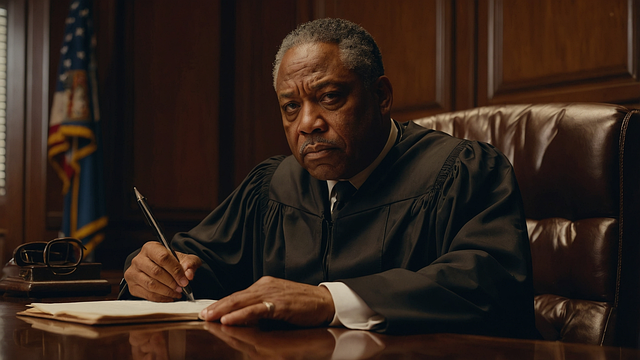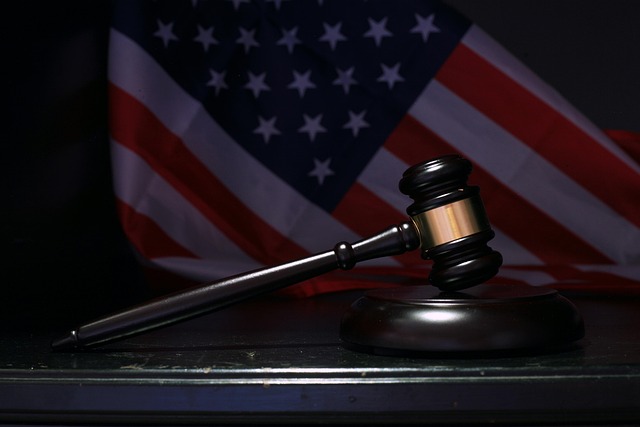Plea bargaining is a critical process in criminal law, enabling defendants to plead guilty for reduced charges or sentencing. It impacts sentencing severity, offers charge dismissals, and aids prosecutors in strategic case management. While efficient, critics argue it may undermine justice and rehabilitation. The balance between fairness and efficiency is delicate, especially with power imbalances. Philanthropic and political efforts advocate for transparent procedures to enhance both aspects in criminal justice. Plea bargaining streamlines complex cases, particularly white-collar crimes, leading to faster resolutions.
“Delve into the intricate world of criminal law enforcement and its key processes through this comprehensive guide. We explore the fine lines between justice and efficiency, focusing on plea bargaining—its mechanisms, advantages, and potential pitfalls. Understand how plea agreements shape sentencing severity, weighing fairness against rapid resolution. Additionally, discover alternative dispute resolution methods that are transforming criminal law, offering innovative approaches to justice. By examining these aspects, we aim to shed light on the complex interplay of legal strategies.”
- Understanding Plea Bargaining Process
- Benefits and Drawbacks of Plea Agreements
- Impact on Sentencing: Fairness vs. Efficiency
- Alternative Dispute Resolution in Criminal Law
Understanding Plea Bargaining Process

Plea bargaining is a critical aspect of criminal law enforcement, offering an alternative to trial for both defendants and prosecutors. This process involves a defendant pleading guilty or no contest in exchange for reduced charges or sentencing recommendations from the prosecution. The plea bargain impact on sentencing severity can be significant, as it allows for more flexibility in negotiating outcomes. For instance, a defendant may secure a complete dismissal of all charges, which is an unprecedented track record for favorable resolutions within the respective business of criminal justice.
By engaging in plea bargaining, prosecutors can focus resources on cases with greater public safety risks or those involving substantial evidence. This strategic approach ensures that judicial time and efforts are allocated efficiently, allowing for a more streamlined legal process. The benefits extend to defendants as well, providing an opportunity to avoid the stress and uncertainty of trial, receive shorter prison sentences, or even complete dismissal of charges, thereby altering the trajectory of their lives.
Benefits and Drawbacks of Plea Agreements

Plea agreements play a significant role in criminal law enforcement, offering both advantages and disadvantages. One of the key benefits is their impact on sentencing severity. In high-stakes cases, particularly involving white collar offenses, plea bargaining can lead to reduced sentences or even the complete dismissal of all charges for defendants who cooperate with prosecutors. This strategy fosters a sense of fairness, as it allows for a more balanced approach in managing criminal cases. By encouraging guilty pleas through negotiations, law enforcement agencies can free up resources and focus on other pressing matters.
However, plea agreements also have drawbacks. Critics argue that they may compromise the integrity of the justice system by potentially allowing some individuals to avoid accountability. Moreover, while they can reduce sentencing time, they do not always address the underlying issues or rehabilitate offenders, which is a crucial aspect of criminal justice reform. Striking the right balance between efficient case management and ensuring justice remains a complex challenge in plea bargaining practices.
Impact on Sentencing: Fairness vs. Efficiency

The balance between fairness and efficiency is a delicate act within criminal law enforcement, particularly when considering the impact on sentencing. One significant factor that influences this equilibrium is plea bargaining, which plays a pivotal role in shaping outcomes for both individuals and the justice system as a whole. Plea bargaining allows defendants to negotiate a lesser charge or sentence in exchange for pleading guilty, thereby streamlining the judicial process. This practice has its merits, as it can reduce overcrowding in prisons, save court resources, and expedite trials. However, critics argue that it may lead to unfair outcomes, especially when power imbalances exist between prosecutors and defendants.
The impact on sentencing severity is profound, with plea bargaining potentially resulting in more lenient punishments for some offenses. This approach aims to encourage cooperation and reduce the strain on the justice system. Yet, concerns arise when plea bargains are seen as favoring certain segments of society over others. Across the country, there’s a growing awareness of the need for equal protection under the law, which extends to fair sentencing practices. The philanthropic and political communities are increasingly advocating for transparent and just procedures, ensuring that both fairness and efficiency in criminal justice are not compromised but rather enhanced through reform.
Alternative Dispute Resolution in Criminal Law

In the realm of criminal law enforcement, Alternative Dispute Resolution (ADR) methods have emerged as a significant tool to navigate complex cases. One of the most common forms is plea bargaining, which involves defendants pleading guilty in exchange for reduced charges or sentencing. This strategy has a profound impact on sentencing severity, offering a more efficient and less adversarial approach compared to traditional trials. By negotiating pleas, prosecutors can secure convictions while also managing case loads, ultimately leading to faster resolutions.
Plea bargaining plays a crucial role in addressing various criminal matters, including white-collar and economic crimes, where complex financial schemes often require intricate legal strategies. The general criminal defense process benefits from this alternative as it enables defendants to avoid the rigors of trial, potentially resulting in winning challenging defense verdicts. This method not only streamlines the judicial system but also ensures that both parties reach mutually agreeable outcomes, fostering a more cooperative environment within the legal framework.
The intricate interplay between plea bargaining, its associated agreements, and sentencing practices shapes the criminal justice system’s ability to balance fairness and efficiency. By understanding the benefits and drawbacks of plea deals, from reduced sentences to potential biases, we can navigate the complexities of criminal law enforcement. As alternative dispute resolution methods gain prominence, it’s crucial to assess their impact on sentencing severity while ensuring a fair and just process for all involved.






